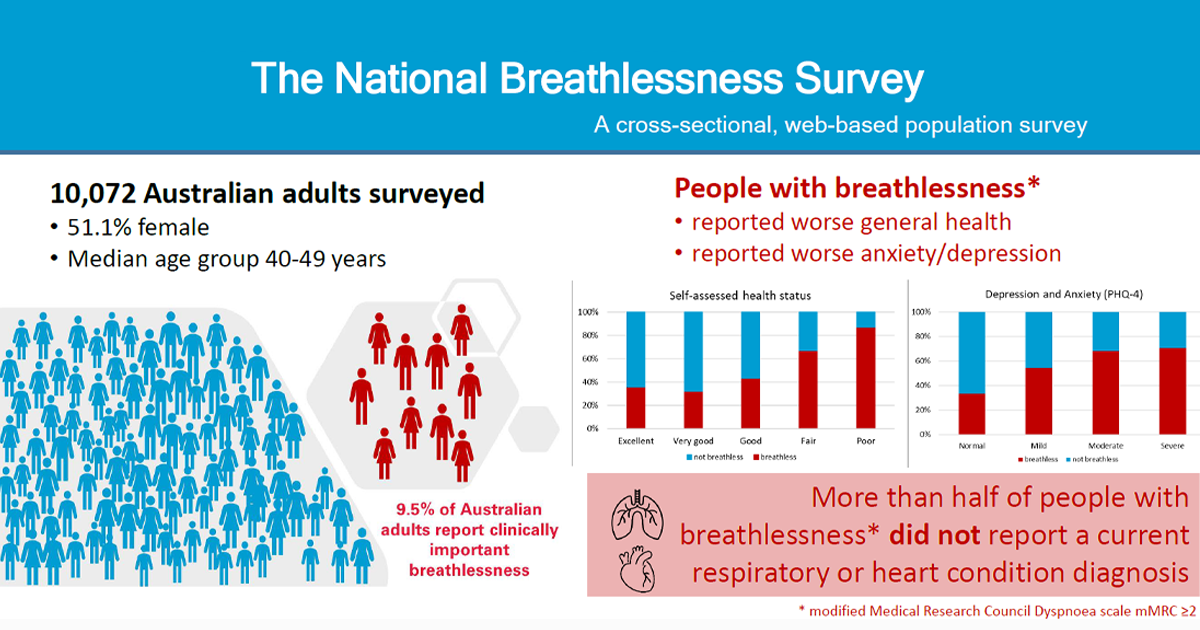The Woolcock Institute of Medical Research

Take my breath away: survey shows breathlessness widespread
Getting puffed while taking a stroll is a problem for almost one in ten Australians, according to new national research that reveals the true burden of breathlessness.
The survey, carried out by the Woolcock Institute of Medical Research in Sydney, found 9.5 percent of adults experience breathlessness severely enough to impact on their physical and mental health. It also found those with breathlessness have worse quality of life, and more severe symptoms of depression and anxiety, than those without breathlessness.
“It was concerning to see just how widespread and common this symptom is in the community,” says respiratory specialist and co-author of the paper, Professor Helen Reddel. “It’s a problem, especially as we know breathlessness causes physical, social and emotional distress, and is also a marker of underlying chronic health conditions.”
The study, published in the journal Respirology, was undertaken by the Australian Centre for Airways disease Monitoring (ACAM) based at the Woolcock Institute of Medical Research.
The National Breathlessness Survey was carried out to investigate the true burden of breathlessness in a randomly-selected, nationally representative adult sample. The online questionnaire was completed by 10,072 people, and found 9.5 percent had so-called ‘clinically important’ breathlessness. These participants reported needing to walk slower than others of the same age, or having to stop for breath when walking at their own pace.
“Among this group, about half reported a current respiratory or heart condition diagnosis,” Professor Reddel says. “That’s not surprising as we know breathlessness is linked to heart and lung health issues.”
About one third of those with clinically significant breathlessness didn’t have a respiratory or heart condition, anxiety or depression, and they weren’t obese or heavy smokers. Professor Reddel says this suggests that underlying respiratory or heart conditions may be going undiagnosed in these people. “Either that or they have some sort of upper airway dysfunction, dysfunctional breathing or reduced fitness problem that is impacting heavily on their breathing,” she says. “Ideally we’d want to know what’s happening for these people and ensure they get any underlying health condition diagnosed.”










